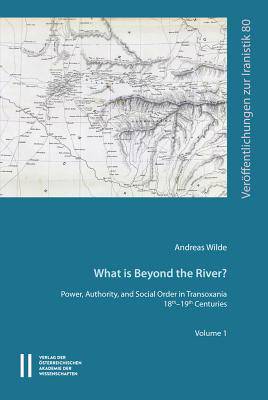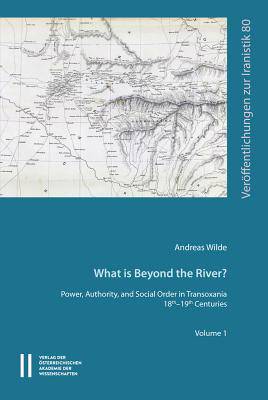
Je cadeautjes zeker op tijd in huis hebben voor de feestdagen? Kom langs in onze winkels en vind het perfecte geschenk!
- Afhalen na 1 uur in een winkel met voorraad
- Gratis thuislevering in België vanaf € 30
- Ruim aanbod met 7 miljoen producten
Je cadeautjes zeker op tijd in huis hebben voor de feestdagen? Kom langs in onze winkels en vind het perfecte geschenk!
- Afhalen na 1 uur in een winkel met voorraad
- Gratis thuislevering in België vanaf € 30
- Ruim aanbod met 7 miljoen producten
Zoeken
What Is Beyond the River?
Power, Authority, and Social Order in Transoxiania 18th-19th Centuries
Andreas Wilde
Paperback | Engels
€ 223,95
+ 447 punten
Omschrijving
This book investigates the dialectics of power and social order in eighteenth and nineteenth-century Ma Wara' al-Nahr from an intrinsic perspective. Relying on a rich corpus of Bukharan primary sources, the study is a work of fundamental research that combines established traditions of social historical research and approaches borrowed from the social sciences. The resulting narrative stretches from the Mongols and Abu'l-Khairids to the eighteenth century and the late Tuqay-Timurids, when the established spatial-administrative framework crumbled into an archipelago of petty Uzbek principalities, chiefdoms and "city states," continuing with the Manghits and finishing in the late nineteenth century with the colonial penetration. While beginning with a conventional bird's-eye view of steppe society worldviews and established patterns of authority, the author soon abandons the sole dynastic focus and comes up with a range of local histories. The reader will be acquainted with places like Nur, Shahr-i Sabz, Tirmidh, Hisar and other areas, which, having been dominated by competing military, religious and economic networks, remained partly outside the sphere of Tuqay-Timurid and later on Manghit authority. A large part of the book addresses the language employed in the chronicles by highlighting the semantics of key terms such as favor, loyalty or obedience. Those concepts are manifest in practices like patronage, mediation and gift exchange. Based on the materials of the Koshbegi Archive, the final part culminates in a range of micro-level studies of various socio-political domains in faraway villages and canal systems. Inspired by relational ideas of power, the analysis enhances our understanding of the factors that were decisive for social interaction in that period. Moreover, it gives fresh impulses to the debate on concepts of power and authority among historians and social scientists.
Specificaties
Betrokkenen
- Auteur(s):
- Uitgeverij:
Inhoud
- Aantal bladzijden:
- 1101
- Taal:
- Engels
Eigenschappen
- Productcode (EAN):
- 9783700178668
- Verschijningsdatum:
- 10/08/2016
- Uitvoering:
- Paperback
- Formaat:
- Trade paperback (VS)
- Afmetingen:
- 152 mm x 234 mm
- Gewicht:
- 1896 g

Alleen bij Standaard Boekhandel
+ 447 punten op je klantenkaart van Standaard Boekhandel
Beoordelingen
We publiceren alleen reviews die voldoen aan de voorwaarden voor reviews. Bekijk onze voorwaarden voor reviews.









